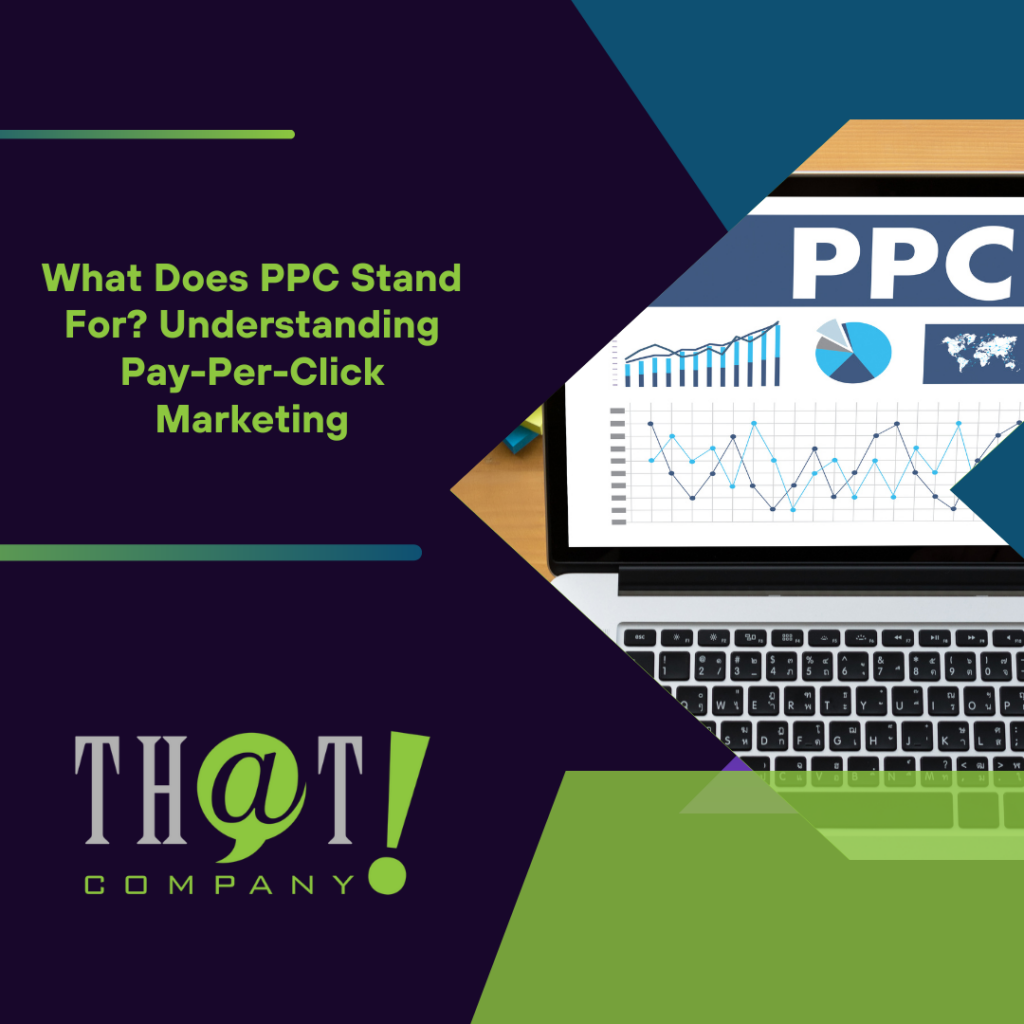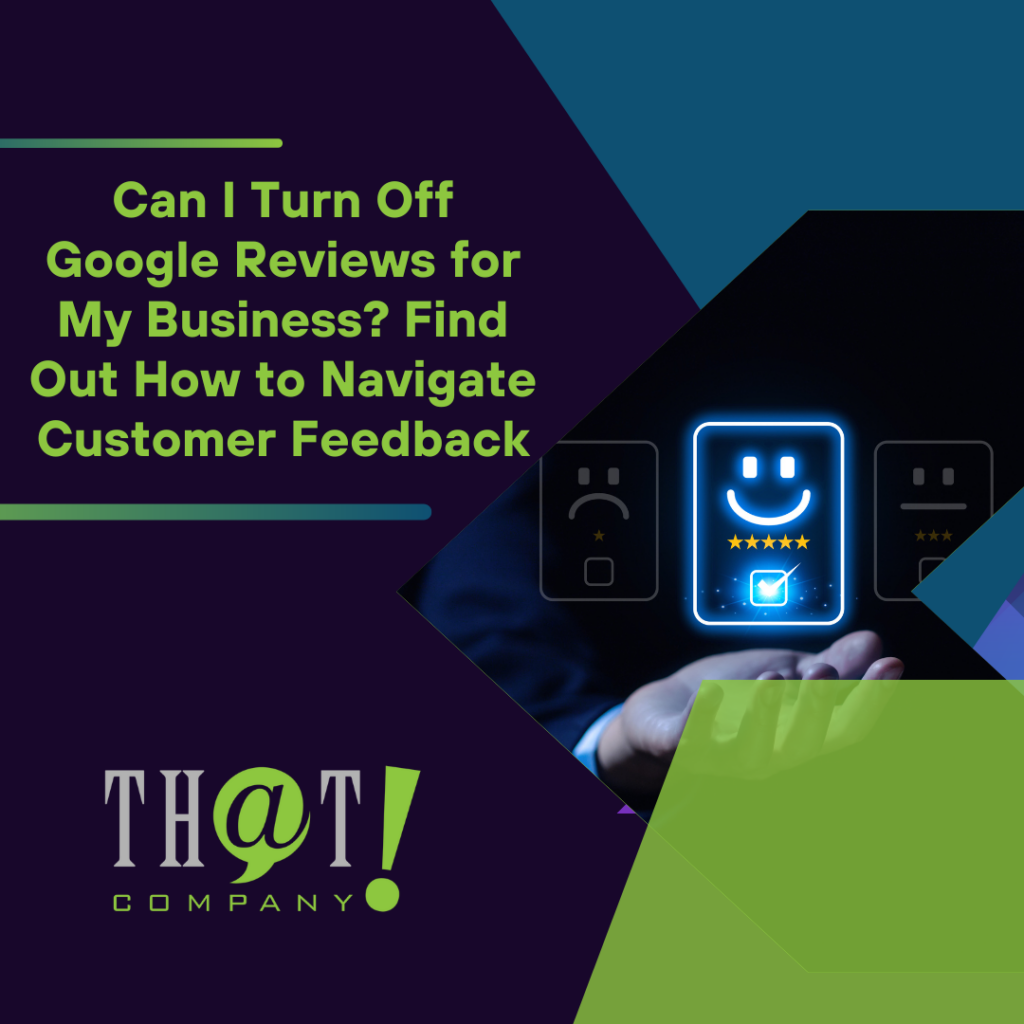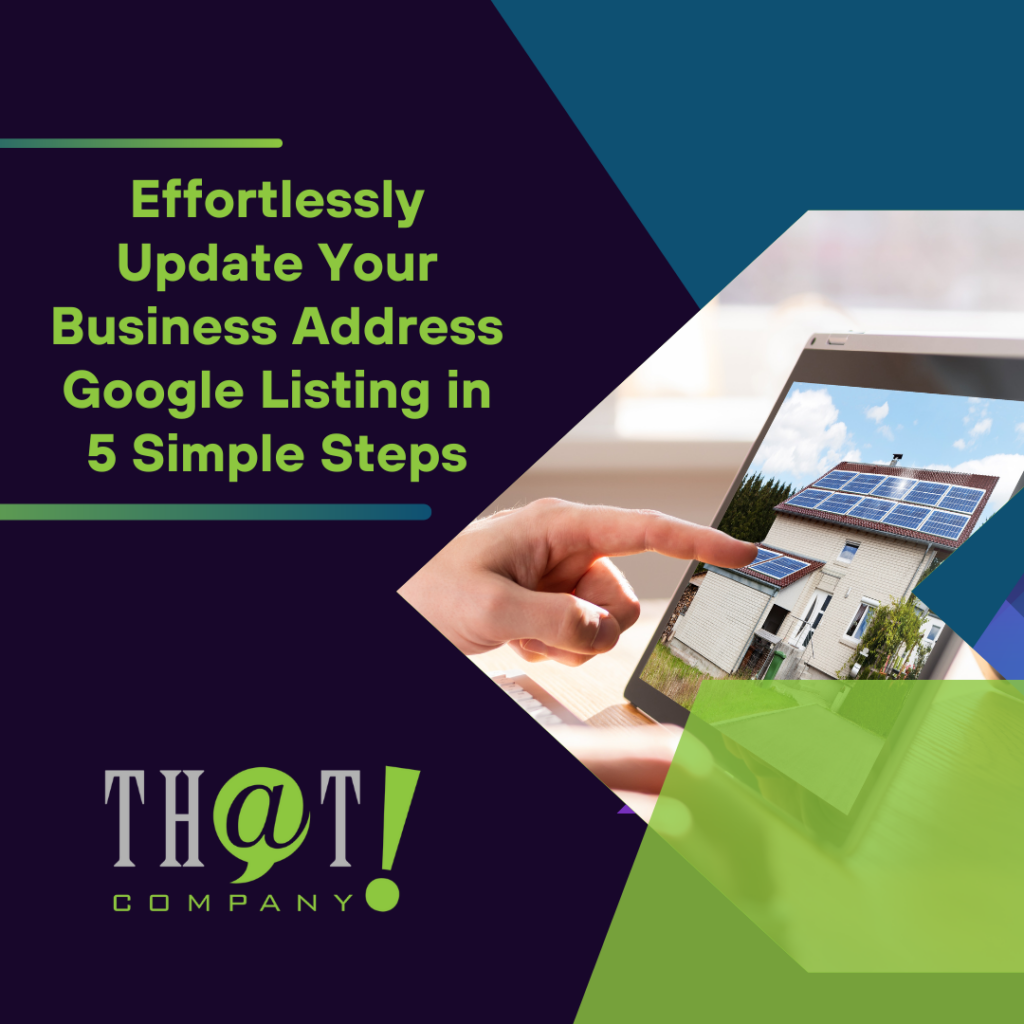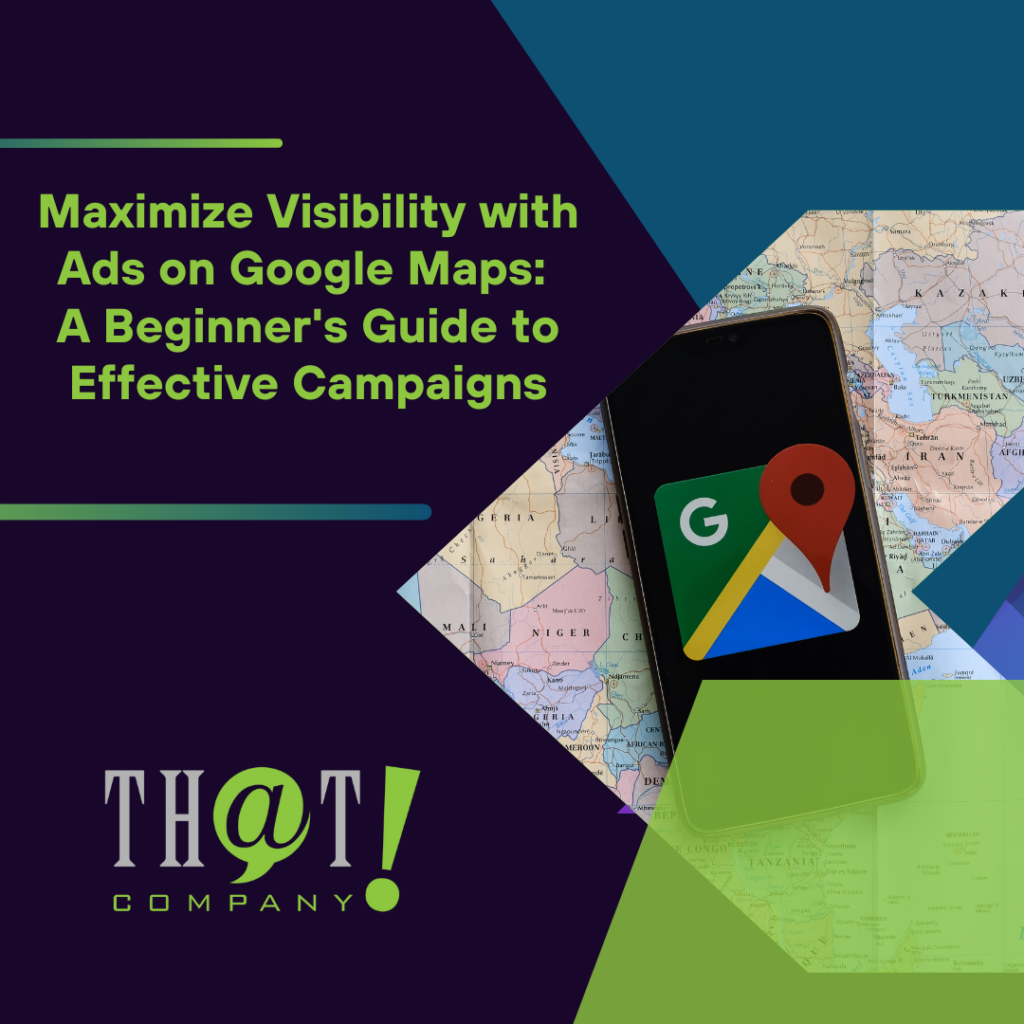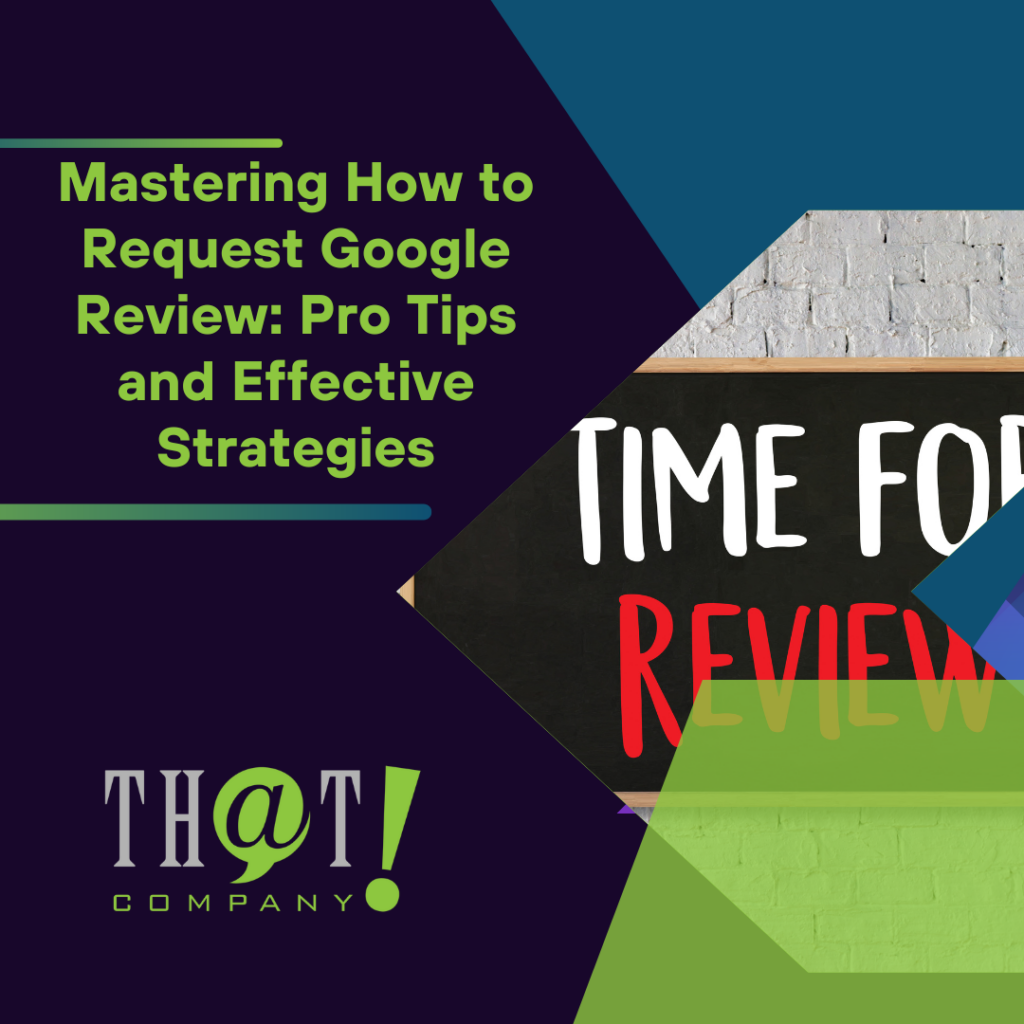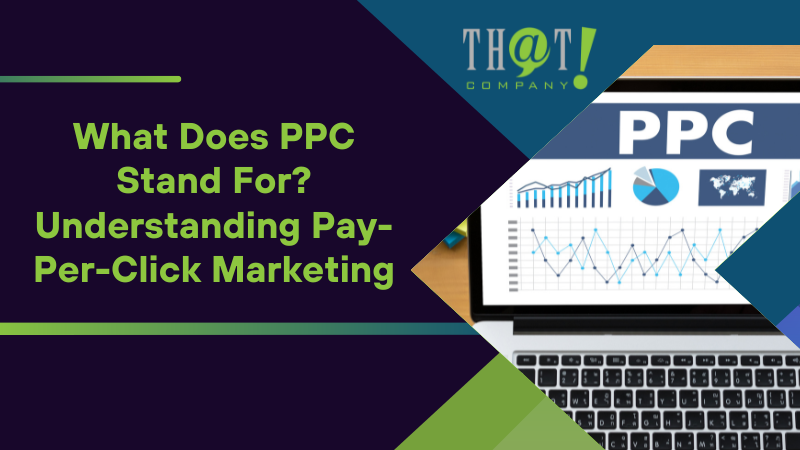
PPC stands for ‘pay-per-click,’ a common model in digital advertising where businesses pay only when users click their ads. This model is cost-effective, driving real visits to websites. In this article, we will explore what does PPC stand for, what it means, how it works, and its benefits for businesses.
Key Takeaways
- PPC, or pay-per-click, allows advertisers to pay only when their ads are clicked, making it a cost-effective way to drive traffic and leads.
- Keyword research and targeting are essential for successful PPC campaigns, as they help ensure ads reach the right audience at the right time.
- Ongoing optimization and performance analysis are crucial for long-term success in PPC marketing, enabling businesses to adapt to trends and maximize ROI.
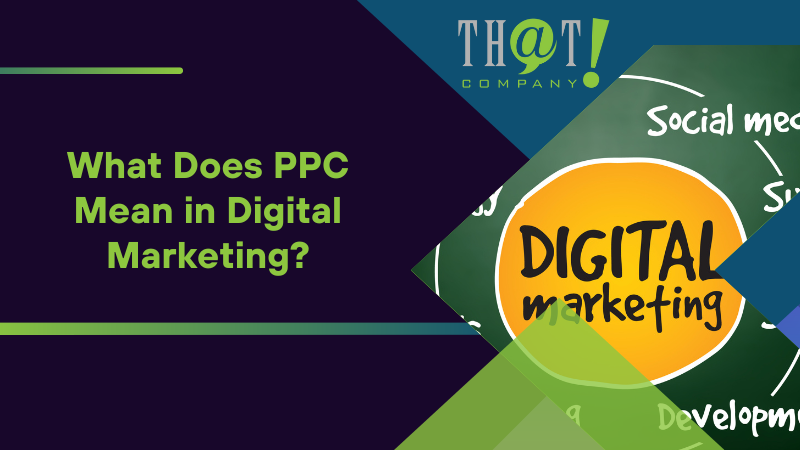
What Does PPC Mean in Digital Marketing?
PPC stands for “pay-per-click,” a model of online advertising where advertisers incur costs only when their ads are clicked. This model ensures that businesses only pay for actual visits to their site, making it a cost-effective method to drive traffic and generate leads. Essentially, PPC ads appear on search engines or other platforms, and advertisers bid on keywords relevant to their business to secure ad placements.
The primary purpose of PPC marketing is to boost website performance, obtain leads, and increase sales, all while paying solely for results. This model’s targeted approach helps businesses reach potential customers who are actively searching for their products or services, making it a staple in the digital marketing toolkit.

How Does PPC Advertising Work?
PPC advertising operates on a bidding system where advertisers bid on keywords relevant to their business. When users enter these keywords into search engines, the ads are prominently displayed on the search engine results pages (SERPs). Businesses can also leverage PPC white label services to optimize campaigns, improve performance, and maximize ROI.
The ads’ placement depends on the bid and the ad’s quality score, which evaluates the ad’s relevance, expected click-through rate, and landing page quality.
The Role of Keywords in PPC
Keywords are the backbone of PPC advertising. These are words and phrases that trigger your ads when users search for them. Choosing the right keywords is crucial for the success of your PPC campaign. Tools like the Keyword Magic Tool can help identify the most effective keywords for your campaign. Organizing these keywords into groups, or clusters, ensures they are managed effectively within your Google Ads account.
A diverse keyword strategy, including long-tail keywords, enhances PPC performance by targeting specific user searches, often leading to higher conversion rates. This approach ensures your ads reach the most relevant audience, thereby increasing the likelihood of conversions.
Setting Up a Google Ads Account
Establishing a Google Ads account is the initial step to launching a successful PPC campaign. Start by providing a valid email address and password to create your account. Once your account is set up, you can begin creating your first campaign by selecting your goal and campaign type.
Before diving into campaign creation, it’s essential to conduct thorough keyword research and organize your keywords into ad groups to ensure effective targeting. Utilizing a PPC checklist can streamline this process, helping you avoid missing critical steps and ensuring your campaign is set up for success.
Bidding Strategies and Budget Management
Selecting the right bidding strategy is crucial for your PPC campaign’s success. Google Ads offers Smart Bidding strategies that optimize for conversions automatically, enhancing campaign performance. Depending on your goals, you may choose bidding strategies focused on clicks, impressions, conversions, or views.
Budget management is equally crucial, as it significantly influences your campaign’s success. When establishing your budget, consider factors such as campaign duration and potential daily caps. Proper bid adjustments based on device type, time of day, and audience can further control your maximum cost-per-click (CPC) and improve your campaign’s efficiency.
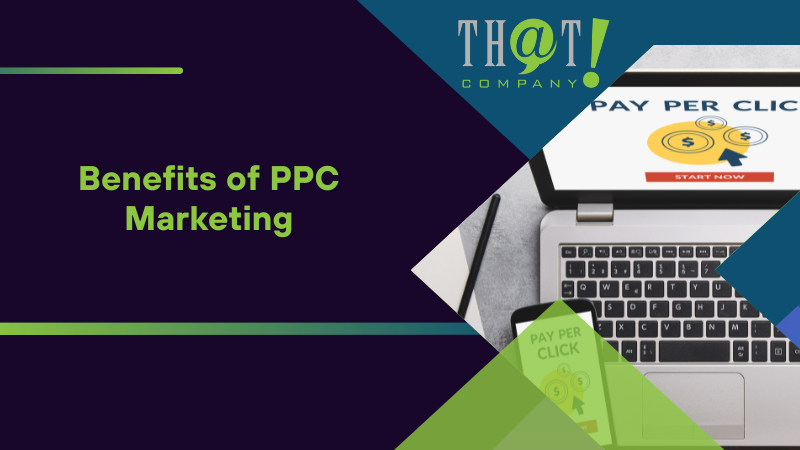
Benefits of PPC Marketing
What does PPC stand for? PPC stands for Pay-Per-Click, a digital advertising model in which advertisers incur a cost whenever a user clicks on their ad. PPC marketing offers a multitude of benefits, making it an attractive option for businesses looking to enhance their digital presence. It provides immediate visibility to specific audiences, ensuring that PPC ads reach users who are likely to convert.
Additionally, PPC marketing allows advertisers to track clicks and conversions effectively, providing measurable results that inform future campaign strategies.
Fast Results and Increased Traffic
One of the standout benefits of PPC campaigns is the speed at which they can yield results. Unlike SEO, which can take months to show significant effects, PPC campaigns can start driving traffic to your website within weeks. This immediate access to potential visitors means you don’t need to build an audience first; your ads can reach users actively searching for your products or services right away.
Search ads offer immediate visibility. They are particularly effective in attracting target audiences. These ads, appearing at the top of search engine results, are popular among businesses because they promote products or services directly to users with high purchase intent, driving substantial traffic to websites.
Cost-Effective Advertising
PPC operates on a model where advertisers only pay for actual clicks, maximizing ad spend efficiency. This ensures that businesses only incur costs when users engage with their ads, making PPC a highly cost-effective solution in digital marketing.
To achieve successful PPC campaigns, it’s crucial to begin with clear objectives and defined budget parameters. Advertisers can adjust their costs per click based on competition and campaign performance, ensuring that their ad spend is used effectively to generate the best possible results.
Enhanced Targeting Capabilities
PPC advertising allows for specific targeting by demographics, interests, and geographic locations. This enhanced targeting capability enables advertisers to reach the most relevant audience, ensuring that their ads are shown to users who are most likely to convert.
Companies like That! Company employ precise audience segmentation, leveraging demographic, geographic, and behavioral data to deliver highly targeted ads that drive qualified traffic and conversions. These targeting features ensure that PPC campaigns are effective in maximizing engagement and conversions.
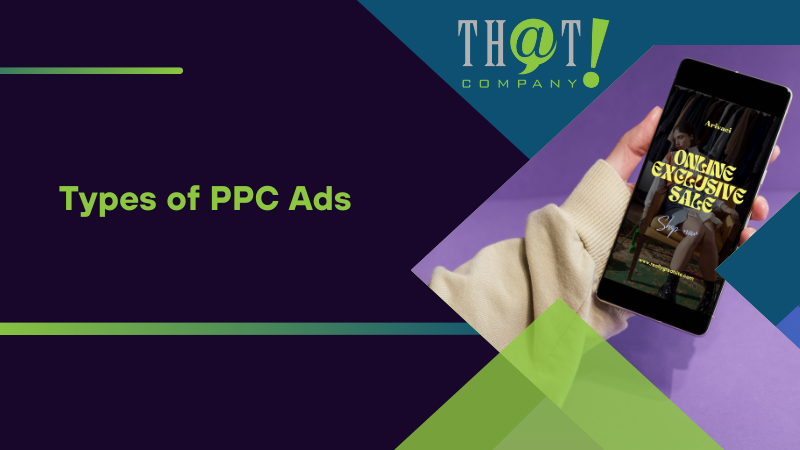
Types of PPC Ads
PPC ads come in various forms, including text, images, and videos, and can be displayed across multiple platforms. Understanding the different types of PPC ads available can help businesses choose the most effective formats for their campaigns.
Search Ads
Search ads are text ads that appear on search engine results page (SERPs) when users search for relevant keywords. These ads are designed to appear prominently above and below organic search results, ensuring maximum visibility for businesses bidding on those keywords, including search engine’s sponsored links.
Search engine advertising is a prevalent form of PPC, allowing advertisers to bid for ad placements based on relevant searches. This method ensures that ads reach users at the exact moment they are searching for products or services, increasing the likelihood of conversions.
Display Ads
Display ads are typically graphical ads designed to capture users’ attention while they browse the internet. These ads are displayed on websites within Google’s Display Network, increasing brand awareness by reaching users across a wide range of sites.
The primary goal of display ads is to boost brand recognition and reach potential customers who may not be actively searching for your products or services but are likely to be interested based on their browsing behavior.
Video Ads
Video ads are becoming increasingly popular as businesses leverage platforms like YouTube to reach wider audiences. These ads provide engaging content designed to capture audience attention effectively, making them a powerful tool in digital marketing.
In video campaigns, the CPV (cost-per-view) bidding option lets advertisers pay only when users watch their videos. This model ensures that ad spend is used efficiently, reaching users who are genuinely interested in the content.
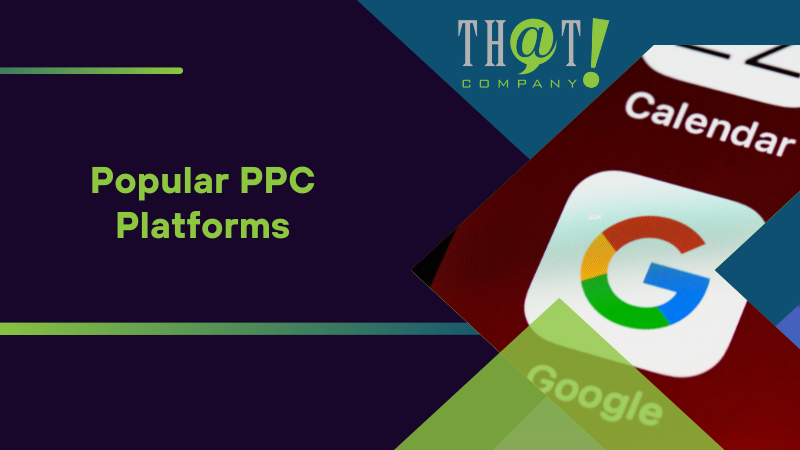
Popular PPC Platforms
Several platforms are popular for running PPC campaigns, each offering unique features and targeting capabilities. Some of the most notable include Google Ads, Microsoft Ads, and Meta Ads.
Google Ads
Google Ads is the most popular PPC advertising system worldwide, recognized as the largest PPC platform globally. It offers a wide range of ad formats, including search ads, display ads, and video ads, allowing advertisers to reach users across various platforms.
Companies like That! Company design tailored PPC campaigns across Google Ads to maximize performance, leveraging advanced tools and strategies to ensure the highest possible return on investment.
Meta Ads
Meta Ads, which include Facebook and Instagram Ads, are crucial for social media PPC advertising. These platforms allow businesses to effectively target specific user demographics based on interests, behaviors, and locations.
Ads on Meta platforms can appear in various placements, including the News Feed, right-hand column, and mobile Stories section, increasing engagement by blending in with typical posts. Remarketing features on these platforms also help re-engage users who have previously interacted with a business.
LinkedIn Ads
LinkedIn Ads are particularly effective for B2B marketing, providing access to a vast network of professionals and decision-makers. This platform allows businesses to target ads to specific industries, job titles, and company sizes, ensuring that their messages reach the most relevant audience.
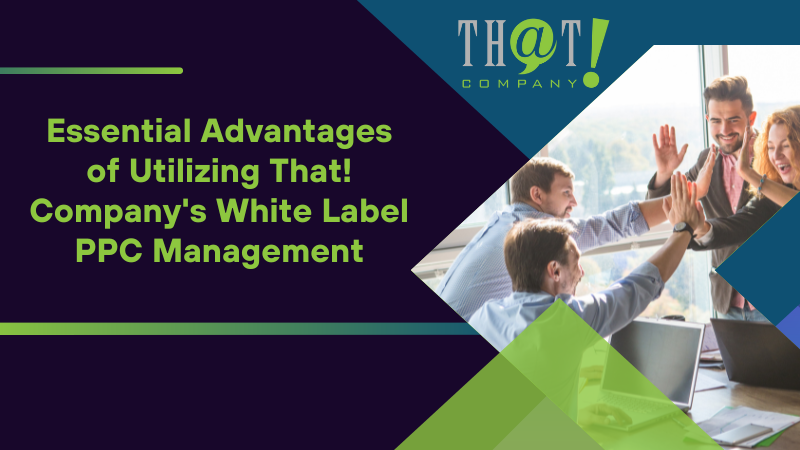
Essential Advantages of Utilizing That! Company’s White Label PPC Management
Utilizing a White Label PPC Management Agency like That! Company allows businesses to enhance operational efficiency by outsourcing specialized services. This approach frees up internal resources for core business areas while providing access to expert knowledge and experienced professionals who can deliver high-quality PPC campaigns tailored to specific business objectives. Partnering with the best white label digital marketing providers ensures businesses stay competitive while maximizing their advertising ROI.
That! Company’s services improve return on investment and conversion rates through the use of analytics to refine targeting and ad strategies. Their transparent reporting practices foster trust and collaboration, ensuring clients can track campaign progress and make informed decisions.
Moreover, partnering with a White Label PPC Management Agency enables businesses to stay competitive in the fast-evolving digital marketing landscape. These agencies keep abreast of the latest trends and technologies in PPC advertising, ensuring that their clients’ campaigns are always optimized for maximum effectiveness. By leveraging advanced tools and platforms such as Google Ads and Meta Ads, they can offer innovative solutions that drive traffic and conversions.
Additionally, the flexibility offered by White Label PPC services allows businesses to scale their advertising efforts according to their growth and market demands. Whether launching new products or entering new markets, these agencies can quickly adapt and adjust strategies to meet specific goals and challenges. This adaptability ensures that businesses can maintain a

Creating Effective PPC Campaigns
Creating effective PPC campaigns requires a clear strategy and consistent evaluation processes. Scaling campaigns involves enhancing existing ads and launching new ones based on market changes, ensuring sustained success.
Conducting Keyword Research
Keyword research is essential for building successful PPC campaigns, allowing for refinement and expansion of keyword lists. Long-tail keywords are particularly recommended as they often lead to higher conversion rates.
Using appropriate keyword match types ensures that ads are correctly targeted to user searches. Tools like the Free Keyword Tool can help find high-volume, industry-specific keywords, optimizing your campaigns for success.
Crafting Compelling Ad Copy
Crafting compelling ad copy is vital for attracting clicks and converting visitors. Effective ad copy should be concise, directly addressing the user’s needs or queries. Highlighting the benefits of your product or service rather than just its features can significantly increase engagement.
Combining benefits-focused messaging with concise delivery enhances the effectiveness of your PPC ads.
Designing Impactful Landing Pages
Designing landing pages that are directly related to the ad’s messaging can greatly improve conversion rates. Consistent messaging between ads and landing pages enhances user trust and reduces bounce rates.
A clear call-to-action on landing pages is essential to guide users toward the desired outcome, ensuring that your campaigns achieve their goals.

Optimizing Your PPC Campaigns
What does PPC stand for? PPC stands for Pay-Per-Click, a digital advertising model where advertisers pay a cost each time a user clicks on their ad. Ongoing optimization of PPC campaigns is crucial for improving performance and return on investment. Regular assessment of keyword performance and key metrics like CTR and CPC helps identify areas for improvement.
Using Negative Keywords
Negative keywords are essential for optimizing PPC campaigns as they prevent ads from showing for irrelevant searches. This approach ensures that your budget is spent more effectively by excluding poor-performing keywords and focusing on the most relevant terms.
Using the Search terms report in Google Ads, advertisers can identify terms that are not converting and add them as negative keywords. This continuous refinement helps improve the overall performance and efficiency of your PPC campaigns.
A/B Testing Ads
A/B testing, or split testing, allows advertisers to compare two versions of an ad to find out which one performs better. This method is invaluable in identifying effective strategies and adapting to changing market conditions.
Continuously testing different ad variations helps advertisers discover which versions generate more clicks and conversions. This iterative process leads to more effective ads and improved campaign performance over time.
Monitoring and Adjusting Bids
Regularly adjusting bids is crucial for maximizing ROI and ensuring effective budget utilization, especially in a competitive PPC market. Conducting regular performance analysis provides insights into which keywords and ads are performing well, guiding informed bid adjustments.
Leveraging automation tools can streamline bid management processes, allowing for consistent, data-driven adjustments to bids without manual intervention. This approach ensures that your PPC campaigns remain competitive and cost-effective.
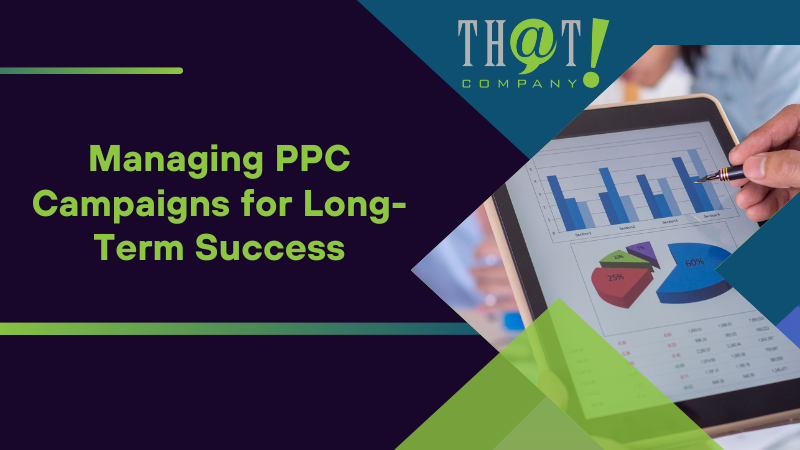
Managing PPC Campaigns for Long-Term Success
What does PPC stand for? PPC stands for Pay-Per-Click, a digital advertising model where advertisers pay a fee each time their ad is clicked. Managing PPC campaigns for long-term success requires regular analysis, optimization, and adaptation to industry trends. By continuously refining strategies and leveraging new tools, businesses can maintain effective and profitable PPC campaigns.
Regular Performance Analysis
Regularly assessing campaign performance metrics is essential for identifying areas needing improvement. Adjusting bids based on the performance of keywords can lead to better ad placements and improved ROI. Frequent bid adjustments based on performance data help maximize ad visibility and enhance overall campaign performance.
Ongoing analysis is critical to remaining competitive in the PPC landscape.
Leveraging Automation Tools
Automation tools can significantly enhance efficiency by minimizing manual tasks in campaign management. These tools help manage bids and optimize ads in real-time, allowing marketers to focus on strategy and creative aspects of their campaigns.
The overall benefits of leveraging automation tools in PPC include increased efficiency, less manual work, and a greater focus on strategic goals. This approach ensures that PPC campaigns are managed more effectively and efficiently.
Staying Updated with Industry Trends
Staying updated on PPC marketing trends is crucial for maintaining a competitive edge in the digital marketing landscape. Major platforms like Google Ads and Meta Ads frequently introduce new features and updates that marketers should be aware of.
Regularly following industry publications, attending webinars, and joining marketing forums are effective methods for staying updated with PPC trends. This ongoing education helps marketers adapt their strategies to changes in user behavior and platform specifications, ensuring long-term success.
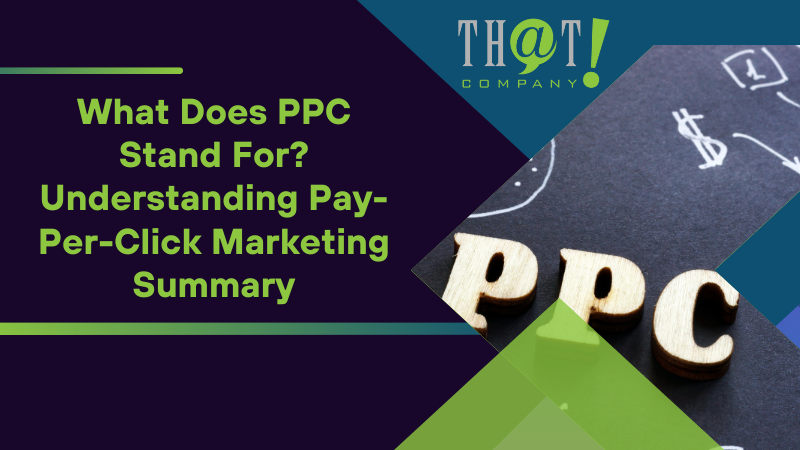
Summary
In conclusion, what does PPC stand for? PPC stands for Pay-Per-Click, a digital advertising strategy in which advertisers are charged a fee for each click on their ad. PPC marketing is a powerful tool in the digital marketing arsenal, offering immediate visibility, cost-effective advertising, and enhanced targeting capabilities. By understanding how PPC works, setting up effective campaigns, and continuously optimizing performance, businesses can achieve significant returns on their investment.
Utilizing services like That! Company’s White Label PPC Management can further enhance campaign effectiveness, providing expert knowledge, tailored strategies, and transparent reporting. As the digital marketing landscape evolves, staying informed and adapting to new trends will ensure sustained success in PPC marketing.
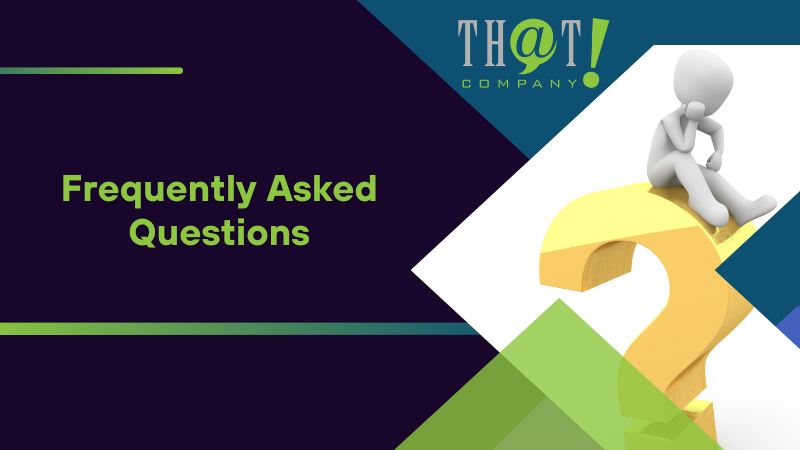
Frequently Asked Questions
What does PPC stand for?
PPC stands for pay-per-click, which means advertisers pay each time someone clicks on their ads. It’s a smart way to drive traffic to your website while keeping costs manageable.
What do we mean by PPC?
PPC, or pay-per-click, means you only pay for your online ads when someone actually clicks on them. It’s a cost-effective way to drive traffic to your site since you’re only charged for genuine interest!
What is a PPC on social media?
PPC, or pay-per-click, is when advertisers pay a fee each time someone clicks on their ad. It’s a smart way to spend your marketing budget since you only pay for actual engagement!
How does PPC advertising work?
PPC advertising works by letting advertisers bid on keywords, so when someone searches for those terms, their ads get displayed in the search results. It’s all about paying for visibility right when potential customers are looking for your offerings.
What are the benefits of PPC marketing?
PPC marketing is a game-changer because it offers instant visibility and allows you to target the right audience precisely. Plus, it’s a cost-effective way to get your message out there!

